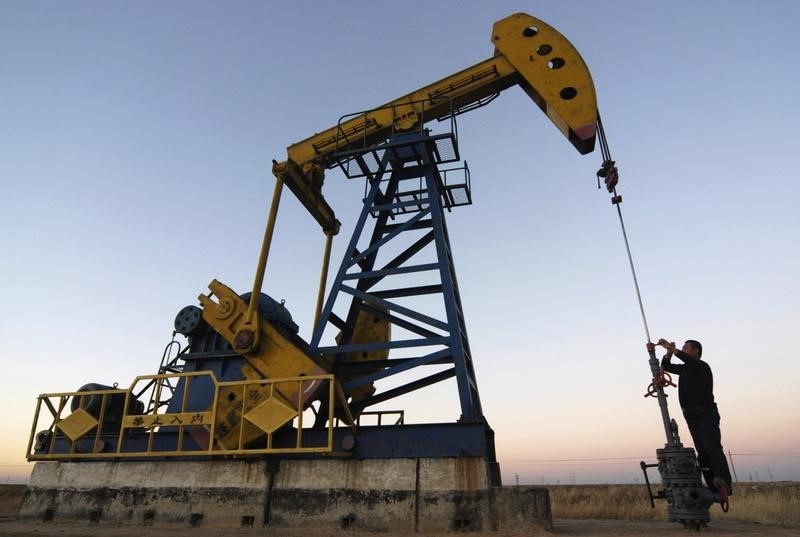* Brent touches Nov. 2014 high: https://tmsnrt.rs/2xATyY1
* U.S. sanctions to target Iran's oil exports from Nov. 4
* Trumps accuses OPEC of ripping off the world
* U.S. crude stockpiles seen down for sixth week - Reuters poll
* Coming Up: API weekly oil stock report at 4:30 p.m. (2030 GMT) (New throughout, updates prices, market activity and comments to settlement)
By Jessica Resnick-Ault
NEW YORK, Sept 25 (Reuters) - Oil prices rose Tuesday on global supply concerns following U.S. sanctions on Iran's oil exports, with benchmark Brent surging to a four-year high, then retraced gains to settle just slightly higher after U.S. President Donald Trump called again on OPEC to boost crude output.
In a speech before the United Nations, Trump reiterated calls on the Organization of the Petroleum Exporting Countries to pump more oil and stop raising prices. Earlier, oil prices had surged on worries about global supply after U.S. sanctions on Iran's oil exports take effect Nov. 4. Brent LCOc1 hit $82.55 per barrel, its highest since Nov. 10, 2014.
"It's hard to believe that the Saudis won't answer the call at some point, especially if prices tick much higher," said John Kilduff, a partner at Again Capital in New York. "He's going to be unrelenting in pressuring them."
The so-called "OPEC+" group, which includes Russia, Oman and Kazakhstan, met over the weekend to discuss a possible increase in crude output, but the group was in no rush to do so.
Mohammad Barkindo, OPEC secretary general, said in Madrid on Tuesday OPEC and its partners should cooperate to ensure they do not "fall from one crisis to another."
Brent crude futures settled up 67 cents at $81.87 a barrel. U.S. crude futures CLc1 rose 20 cents to $72.28 a barrel, close to the highest since mid-July.
Global benchmark Brent is on course for its fifth consecutive quarterly increase, the longest stretch since early 2007, when a six-quarter run led to a record high of $147.50 a barrel.
Trump also said in his speech that Washington will put more sanctions on Iran following oil sanctions in November. sanctions are expected to have an immediate impact on exports from OPEC's third largest producer.
"Iran will lose sizeable export volumes, and given OPEC+ reluctance to raise output, the market is ill-equipped to fill the supply gap," Harry Tchilinguirian, global head of commodity markets strategy at French bank BNP Paribas (PA:BNPP), told the Reuters Global Oil Forum.
Most of the potential supply shortfall has already been priced into the contract, Again Capital's Kilduff said.
The International Energy Agency forecast strong oil demand growth of 1.4 million barrels per day (bpd) this year and 1.5 million bpd in 2019, and said in its most recent report the market was tightening. IEA/M
U.S. crude inventories were forecast to have declined for a sixth straight week, according to analysts polled ahead of reports from the American Petroleum Institute (API), an industry group, on Tuesday, and from the U.S. Department of Energy on Wednesday. EIA/S
<^^^^^^^^^^^^^^^^^^^^^^^^^^^^^^^^^^^^^^^^^^^^^^^^^^^^^^^^^^^ GRAPHIC: Oil prices have risen sharply since 2017 png
https://tmsnrt.rs/2xF310l TAKE A LOOK - Oil industry oozes confidence at APPEC 2018 in Singapore
